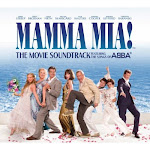
As a teacher of writing, I spend a lot of time reading about the process of writing...how to prewrite, how to write, how to revise, how to edit, how to evaluate...blah, blah, blah. Personally, I have never thought of writing as a process or exact science. Writing, to me, is messy and creative and confusing and wonderful. Writing definitely is difficult to teach, because it is such a personal endeavor. This is precisely why I am frustrated with the cookie-cutter methods of teaching and evaluating writing which are so prevalent today. We, as writing teachers, are presented with four squares and six traits and five sentence-five paragraph essays and six point rubrics...all of which make me want to shout from the mountaintops, "Is this writing or math?!?"
One particular sore spot with me is our state writing test. I have never been able to put into words the exact animosity I feel toward these tests. The students understandably hate them, but let me tell you...the teachers hate them even more. Why? The answer became clear to me as I was reading the words of Barry Lane yesterday. Barry is a respected teacher of writing in the literary community, but he is also a rebel. He despises writing tests as much as I do; however, he is very eloquent in describing his disdain. "No matter how much we would like it to be otherwise," states Barry, "tests promote uniformity, whereas writing teachers, at their best, promote endless diversity. At some level, testing and teaching are diametrically opposed activities." Barry goes on to list his "Truths of Testing" as follows:
- Tests promote uniformity. (Non-compliant writing is often not scorable.)
- Tests promote failure. (If everyone passes the test, it is too easy.)
- Teachers promote diversity. (They want to reach all students.)
- Teachers promote success. (Teachers want all of their students to succeed.)
He, in his most honest and sincere voice, then poses two thoughtful questions, "Are we testing writing, or are we testing compliance?" and "You don't fatten a pig by weighin' it, do you?" Ponder on THAT for a minute.
As I pondered these words, I began reminiscing about one of the finest student writers I have ever had the privilege to work with. Deedee's writing was unique. She wrote with passion and voice, and she rarely followed the five sentence, five paragraph format. However, when she took the state writing test, she did not "meet state standards." Her writing was not normal enough, not formulated enough, not compliant enough for the state. No, Deedee's writing was exceptional in every sense of the word...the state just didn't recognize it because it did not fit neatly into their state-approved, state-standardized six-point writing rubric.
Rethinking Writing Rubrics with Maja Wilson
The thing I loved about Deedee, though, was that she did not need the approval of the state to validate her writing. She knew in her heart she was a good writer, and she loved writing. Deedee has since gone on to higher levels of education, but I spoke with her just the other day. She told me she has not lost her passion for writing, and she has enrolled in a summer creative writing class. She thanked me for always encouraging her to write HER way. I think that is about the highest praise a writing teacher can get.
Deedee's words have motivated me to begin thinking differently. I am no longer going to be a writing teacher...I am going to be a writing encourager. I am going to stage an elegant rebellion whereby I creatively dance around the test and at the same time encourage great writing in my students. It may take me awhile to get my groove going, but I know it can be done. I will listen to the words of Barry Lane as he suggests, "Be the best teacher you can be. Remember who you are and why you are a teacher. Bring your passion into the classroom. When faced with monolithic programs, be eclectic. Choose what works for you and hurl the rest. Cast out the phony lessons in your midst. Make room for real thinking and writing and reading in your classroom. Be the best, most passionate, loving, caring, creative, tough, humanizing teacher you can be. Be a high priest or priestess of "real" education. Be the most glorious teacher you can be."
Me...a high priestess of "real" writing? If I just close my classroom door and do what I know is right in my heart...if I just remember that the true purpose of writing is to help us discover who we are...if I just become a humanizing teacher who encourages her students...it can and will be done. I have to believe this with all of my heart, so that all of my students will find that messy, creative, confusing, and wonderful pot of writing gold at the end of their rainbows.
Barry Lane Presents "What's at the end of the rainbow?"




